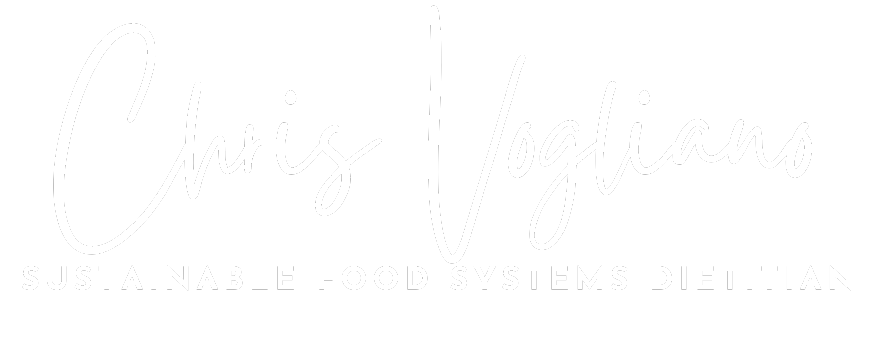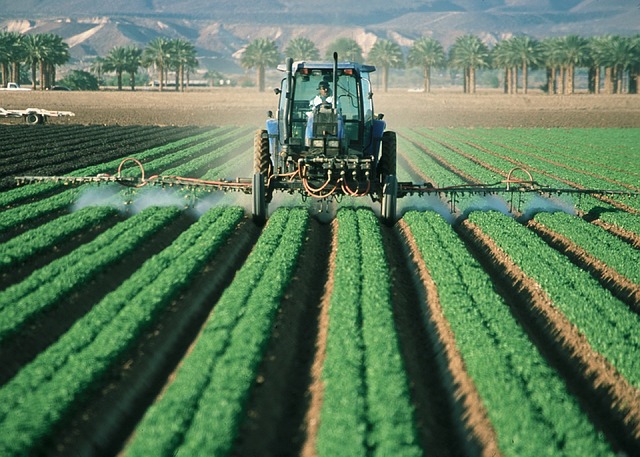Is Organic Food Worth Buying? Advice from a Dietitian
Many people choose organic produce to reduce their risk of pesticide exposure, while others cite they want to support a method of agriculture with a lower carbon footprint. While there are many motives, some hold more scientific rigor than others. Whatever the reason, it is undeniable that organic food is a market trend that has been growing rapidly since 1999 and is showing no signs of slowing down. This begs the question: is the increased price actually worth it?
Brief overview of Organics in the United States
It is often a misnomer that organic farmers are resorting back to old technologies and practices. This is not true. In fact, quite the opposite. Organic farmers use modern equipment, improved crop varieties, soil and water conservation practices, and technological innovations in feeding and handling crops and livestock. Studies do show that organic growing practices produce slightly less food per acre, depending on the type of crop and region the food is grown in.[1] However, there are notable benefits that many experts believe are worth the slight reduction in output.
Organic agriculture has been shown to have a variety of sustainable benefits, including: [2],[3]
- Improved soil quality
- Reduced energy use
- Increased crop biodiversity
- Reduced water pollution
- Reduced worker and environmental exposure to pesticides
- Reduced antibiotic resistance (via animal agriculture)
- And much more…
While not exclusive to organic agriculture, conservation practices are used more often in organic production when compared to conventional agriculture systems. Learn more about what it means to be “Certified Organic” - Organic Certification from the United States Department of Agriculture.
Does this mean that organic is the only way to go?
Not necessarily. Organic foods do have a myriad of social, environmental, and health benefits (see chart below), but there are still many health benefits to eating conventional foods too.
Reganold, John P., and Jonathan M. Wachter. "Organic agriculture in the twenty-first century." Nature Plants 2 (2016): 15221.
What are pesticides?
- Pesticides are any substance used to kill, repel, or control certain forms of plant or animal life that are deemed "pests". This includes herbicides, insecticides, fungicides, disinfectants, and compounds used to control rodents. (EPA)
Will eating organic foods lower my risk of pesticide exposure?
- Yes. It is important to note that certain natural pesticides can still be used in organic agriculture (link). However, studies show that organic foods have lower pesticide residues, meaning that our exposure to them is lessened.[1],[2]
- Some researchers have even studied organophosphate pesticide metabolites in the urine of children, and found significantly less in those children that ate only organic diets.[4],[5]
- There is however debate if these pesticide residues are harmful to our health in the quantities in which we consume them. More long term studies are needed.
Are farm workers impacted by pesticide application?
Photo Credit: Pixabay.com
Yes. Over 1 billion pounds of pesticides are used in the United State each year and approximately 5.6 billion pounds are used worldwide - link.
Farmers are often exposed to very high levels of pesticides,and cite frequent symptoms including headaches, fatigue, insomnia, dizziness, hand tremors, and other neurological symptoms.
Pesticide exposure is also strongly linked to diabetes type 2 in farm workers - link.
Should I skip conventionally grown produce if I can’t find or afford to buy organic produce?
- Absolutely not. The risks of pesticides are real, but the myriad of health benefits of fruits and vegetables are too. Research indicates that not eating the recommended amount of fruits and vegetables is much more detrimental to one’s health than eating fruits and vegetables with pesticide residue. [2]
Is organic produce higher in nutrients?
- Sometimes. However, the debate continues if the increased quantity of nutrients in organic produce is significant enough to make a meaningful difference.[6],[7]
Are Organic produce GMO free?
- Yes. The USDA definition of organic means that the food must be free from genetically modified organisms. However, to date, there have been no credible studies proving that GMOs are unsafe to eat. Check out the National Academy of Science Safety Report for more info on this.
- Personal health aside - many are concerned about the ethical and environmental considerations of GMOs. From years of studying this topic, I have found valid points on both side of the debate.
- We do know that the most commonly grown GMO crops in the U.S. are corn, soy, and canola. These three crops are in a significant portion of the foods we eat everyday, which means we must grow a lot of these crops. GMO corn, soy, and canola are reliant on a monoculture system that relies heavily on pesticides, herbicides, fertilizers, and discourages plant and insect biodiversity.
- Check on my blog post: The Good, The Bad, and the Future of GMOs.
Are Organic foods a better choice for the environment?
- Mostly yes. Not only does eating organic lower your personal exposure to pesticides, but by choosing organic you are also choosing to support a method of agriculture that aims to be more sustainable than conventional growing methods. Pesticides are often applied by farm workers, and exposure to these toxic chemicals have harmful impacts on the health of the workers, environment, soil, river, and air. Excess nutrients from fertilizers are also one of the leading causes of water pollution in the United States. EPA website here.
- Studies have found that organic farming systems consistently have greater soil carbon levels, better soil quality, and less soil erosion compared to conventional systems. They also found increased plant and insect biodiversity among organic farming systems. [9],[10],[11]
- Soil health and biodiversity are two topics cited by top global health organizations as foundational pieces feeding our growing population sustainably. So much so, that the Food and Agriculture Organization declared 2015 as the International Year of the Soil.
Can I wash away pesticide residues on my fruits and vegetables?
- Some of them. It is always a smart idea to rinse your fruits and vegetables under cold water. Rinsing can remove the surface residues, as well as potentially harmful dirt and pathogens.
- Some pesticides are systemic; they are taken up by the plant’s root system and get into the fruit or vegetable flesh so they can’t be washed off.
What’s the best way to wash my produce?
- Wash your produce—conventional and organic—in running water. Be sure to scrub the outside of hard, porous produce such as cantaloupe. This will decrease your risk for foodborne illness and may also reduce pesticide residue.
- You don’t need any special washes. Researchers at the Connecticut Agricultural Experiment Station compared rinsing fruit and vegetables in plain water for one minute with washing them with vegetable washes (four different ones) and a solution of dishwashing soap and water.
Okay, so tell me - should I buy organic produce?
- Buying organic produce is a personal choice that is up to you and your family. There are cited benefits to a properly managed organic farm that are beneficial for both people, farm workers, and the planet.
- If organic foods are within your budget and you want to support a style of agriculture that aims to be more sustainable, then go for it! However, if you cannot afford or don’t have access to organic produce, then buying and eating conventional produce is much better than not eating any produce at all.
- Aim to eat 5 (or more!) servings of fruits and vegetables daily. Free resource – 20 ways to eat more fruits and vegetables.
At the end of the day, most of us want the same thing - a productive, sustainable, profitable, and equitable food system. We must work together to find solutions to these pressing issues if we are going to continue to feed a growing global population. We have the opportunity to vote for the food system we want to see three times a day, every day.
Thanks for reading – and if you like what you're reading, please share / comment / like!
Chris Vogliano MS, RDN
Main Photo Credit:
Pixabay.com - https://pixabay.com/en/agriculture-plant-protection-1359862/
Additional Resources:
- https://www.washingtonpost.com/lifestyle/wellness/a-diet-rich-in-fruits-and-vegetables-outweighs-the-risks-of-pesticides/2017/01/13/f68ed4f6-d780-11e6-9a36-1d296534b31e_story.html?utm_term=.1531f97ef9da
- https://www.epa.gov/tsca-inventory
- https://www.ams.usda.gov/datasets/pdp
- https://depts.washington.edu/ceeh/downloads/FF_Pesticides.pdf
- http://www.consumerreports.org/cro/health/natural-health/pesticides/index.htm
- http://www.efsa.europa.eu/en/science/pesticides
References
[1] Ponisio, Lauren C., et al. "Diversification practices reduce organic to conventional yield gap." Proc. R. Soc. B. Vol. 282. No. 1799. The Royal Society, 2015.
[2] Reganold, John P., and Jonathan M. Wachter. "Organic agriculture in the twenty-first century." Nature Plants 2 (2016): 15221.
[3] Średnicka-Tober, Dominika, et al. "Environmental impact of organic vs. conventional agriculture-a review." Journal of Research and Applications in Agricultural Engineering 61.4 (2016).
[4] Curl, C. L., Fenske, R. A. & Elgethun, K. Organophosphorus pesticide exposure of urban and suburban preschool children with organic and conventional diets. Environ. Health Persp. 111, 377–382 (2003).
[5] Lu, C. et al. Organic diets significantly lower children’s dietary exposure to organophosphorus pesticides. Environ. Health Persp. 114, 260–263 (2006).
[6] Smith-Spangler, C. et al. Are organic foods safer or healthier than conventional alternatives? Ann. Intern. Med. 157, 348–366 (2012).
[7] Brandt, K., Leifert, C., Sanderson, R. & Seal, C. J. Agroecosystem management and nutritional quality of plant foods: the case of organic fruits and vegetables. Crit. Rev. Plant Sci. 30, 177–197 (2011).
[8] USDA Agricultural Marketing Service National Organic Program Handbook (USDA, 2015); available at www.ams.usda.gov/rules-regulations/organic/handbook
[9] Gattinger, A. et al. Enhanced top soil carbon stocks under organic farming. Proc. Natl Acad. Sci. USA 109, 18226–18231 (2012).
[10] Alföldi, T. et al. in Organic Agriculture, Environment, and Food Security (eds Scialabba, N. E.-H. & Hattam, C.) Ch. 2 (FAO, 2002); www.fao.org/docrep/005/y4137e/y4137e00.htm
[11] Tuomisto, H. L., Hodge, I. D., Riordan, P. & Macdonald, D. W. Does organic farming reduce environmental impacts? A meta-analysis of European research. J. Environ. Manage. 112, 309–320 (2012).






